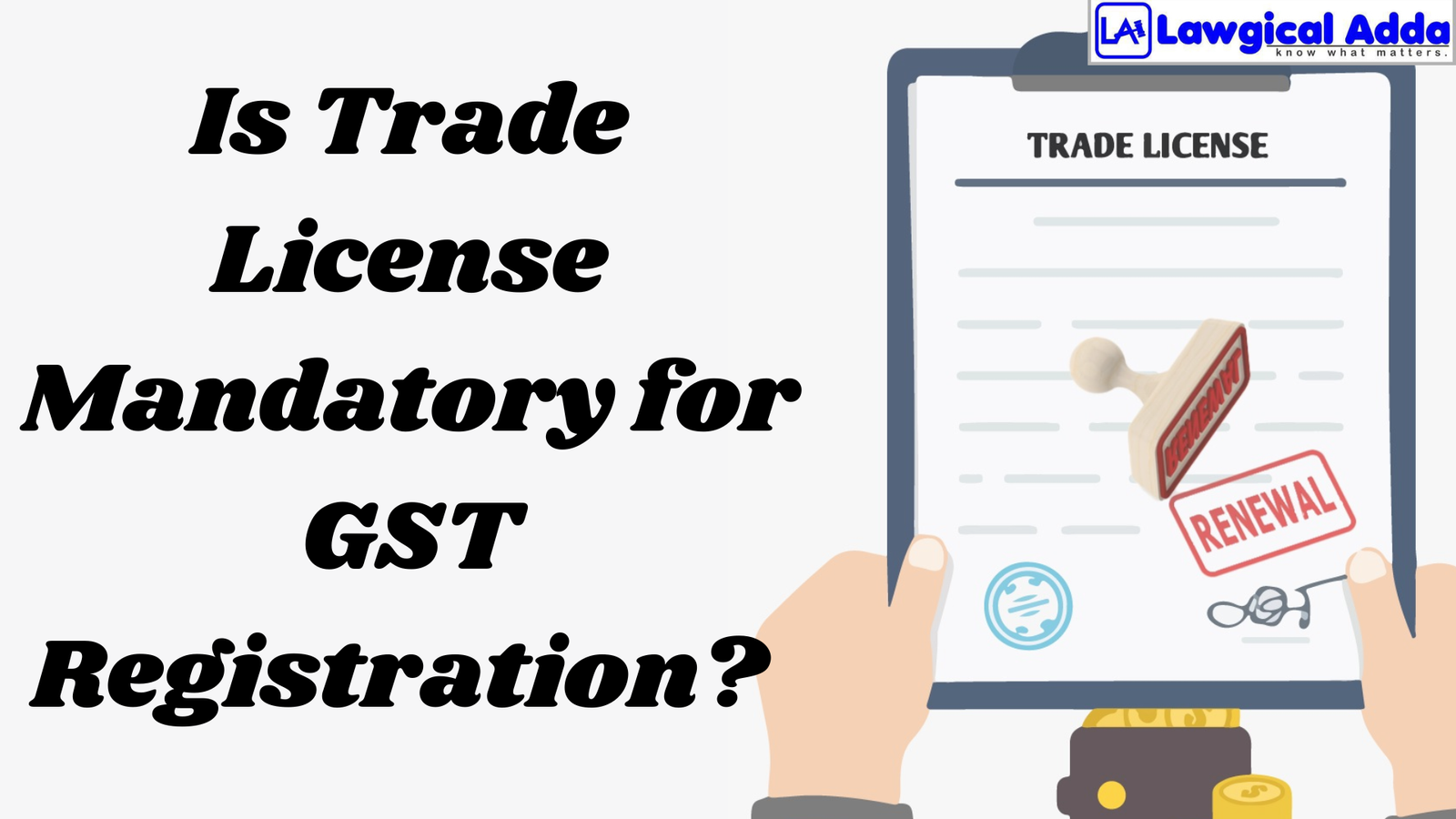Is Trade License Mandatory for GST Registration?

Table of Contents
No, registering for GST does not require a trade license in India. There are several misconceptions about registering for GST in India; one is that obtaining GST requires a trade license.
A business needs to register for GST and get a trade license separately. It does not follow that a company will not need a trade license to conduct business in India just because receiving one is not required while registering for GST.
Comprehending the Trade License
A trade license is a legal document that permits business owners to operate in a particular area and for specific purposes. Its main goal is to standardize and regulate corporate practices to protect the general population’s welfare, health, and safety.
What is GST Registration
The goal of the GST is to combine several indirect taxes into one cohesive tax system. It is mainly used for transactions involving exchanging goods and services between states or inside them. Organizations working in the northeastern and hilly states are exempt from this provision.
You must submit certain required documents with your GST application, including proof of incorporation, proof of income, proof of directorship, proof of business address, etc. Notably, a trade license is not required to register for GST.
There are four parts to GST:
IGST: The Integrated Goods and Services Tax is what it stands for. It is imposed as a combined SGST and CGST tax on the interstate supply of goods and services.
SGST: State-level taxation on intrastate transactions is known as the SGST. Usually, the seller charges GST on the government’s behalf on sales made within the country.
CGST: Central Goods and Services Tax is referred to as CGST. It covers supplies made within the state.
UTGST: The Union Territory Goods and Services Tax, known by its acronym, UTGST, covers transactions within the Union territory.
A Trade License: What Is It?
The Shop and Establishment Act governs trade licenses and covers various business-related topics, including child labor, company practices, worker safety, documentation, and working hours.
The relevant municipal corporation gives it according to its jurisdiction. It forces companies to prioritize equitable playing fields with the highest consideration for people and the environment.
A trade license categorizes businesses according to the risk threshold. Businesses classified as low—to medium-risk pertain to those that present a low to moderate danger to the environment and human health.
What Does a Trade License Do?
Public Safety: It guarantees that the firm’s operations do not endanger the health or safety of the general public.
Zoning Compliance: It complies with local zoning laws and preserves the neighborhood’s aesthetics.
Revenue Generation: Trade licensing fees are one way that municipalities raise money to maintain and develop public facilities.
Which categories are there to get a trade certificate?
The license can be earned under three main categories:
Licenses for industries: Small, medium, and large-scale manufacturing sectors are covered.
Shop license: This license is for businesses that engage in risky and offensive trades, such as those that manufacture crackers, sell firewood, make candles, operate dhobi shops, or provide barber services.
Licenses for food establishments: These include those for bakeries, restaurants, lodging facilities, canteens, and the selling of meat and vegetables, among others.
Does registering for GST require a trade license?
There is no direct association between a trade license and a GST registration; they are two distinct legal approvals. Both credentials are essential but fall under different legal categories due to various regulatory requirements and compliance. Therefore, considering a trade license in conjunction with GST registration is illogical.
Benefits of a Trade License
A trade license has the following significant advantages, some of which are listed below:
- To monitor the organization’s actions, including a proprietorship, limited liability partnership, public limited company, private limited company, etc.
- To ensure that the business is not operating outside its authorized work scope or working overtime.
- Verify that the company’s operations are breaking no laws.
- to regulate the company’s operations to prevent it from bothering the broader public
- Observance of the law and order
Benefits of Registering for GST
The following are some of the main perks or advantages of registering for GST:
- It offers the company credibility in the marketplace among rivals.
- Gaining trust with customers who use the company’s products and services is beneficial.
- to increase customer trust
- Entrepreneurs are eligible for several tax breaks.
- Reducing market-wide tax fraud so that the GST agency may monitor companies
GST registration versus a trade license
- A trade license makes a firm’s main operations lawful and requires ethical business practices. In contrast, firms that register for GST are required to pay taxes on any income that exceeds the threshold.
- Obtaining a GST registration indicates a business with an annual revenue over the threshold, which is 20 lakhs for services and 40 lakhs for items. On the other hand, companies that hold trade licenses are obligated to adhere to fundamental standards for carrying out internal business processes and transactions.
- The Shop and Establishment Act of 1948 governs trade licenses. However, the GST Act is responsible for GST registrations.
Conclusion
In several Indian states, firms must obtain a trade license to operate legally and maintain compliance with environmental, health, and safety regulations. Entrepreneurs must grasp the various regulatory environments and how they affect firms to effectively navigate the
FAQs
Which prerequisites must be met to register for GST?
GST registration requires Aadhaar, bank account information, business paperwork, PAN, and other mandatory requirements.
Is using a trade name required for GST registration?
Yes, it is required to provide a trade name while registering for GST.
In India, is a trade license required?
Yes, in India, some firms are required to have a trade license.
complexities of compliance. Lawgical Adda is essential in helping companies navigate this regulatory labyrinth and easily get trade licenses.







